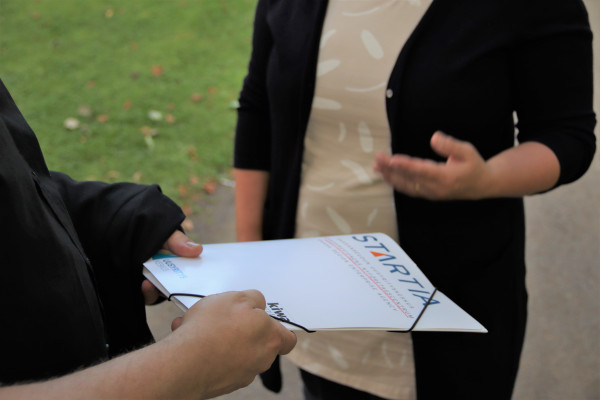Applying for start-up grant — this is how you prepare
Start-up grant is intended to support entrepreneurs who start a new business. Start-up money is not paid automatically, but is a discretionary support that must be applied to the TE Office.

A start-up grant is intended to support entrepreneurs who are starting a new business. The start-up grant serves as an income supplement to the entrepreneur, rather than company funds. However, entrepreneurs must be able to sustain themselves and possibly support their families even during the initial stages of the business when it might not be feasible to draw a substantial salary.
Start-up grant is not provided automatically; it is a discretionary support that must be applied for through the TE Office.
To prepare for the application for start-up funding in the best possible manner, follow these steps:
- Thoroughly examine the prerequisites for obtaining a start-up grant. Verify whether you and your company fulfill the criteria, including requirements like full-time entrepreneurship, initiating a business, or evaluating business profitability.
Read more about start-up grant here - Utilize our expert advice. At Startia, business counseling is offered free of charge. We provide assistance and guidance on applying for the start-up grant, along with impartial yet realistic feedback on your business plan.
Book an appointment for business counseling - Develop a clear and realistic business plan. This plan should detail your company's operations, market positioning, products or services, competitive landscape, marketing strategy, and financial projections. This comprehensive approach will help you articulate your business and convince potential financiers of the necessity for a start-up grant. You can obtain the credentials to use the LISSU business plan program through Startia's business counseling.
Instructions for drawing up a business plan - Create a meticulous financial forecast with initial business earnings, expenses, and cash flow. Accurate financial planning will confirm your need for a start-up grant and clarify the duration for which financing is required until your company can independently cover its operations. The LISSU program can assist you in making these predictions.
- Gather the necessary attachments. Often, various documents are required to apply for a start-up grant, including a business plan, financial projections, tax returns, and bank details. Ensure that you have all the requisite documents prepared and meet the application criteria.
- Craft a clear and concise application for the start-up grant. Present a compelling case for why you require the grant and how it would contribute to your business's success. Use straightforward language and show that you understand and compliance with the start-up grant's terms.
- Monitor the application process closely. After submitting your application, proactively track its progress. Be ready to give additional information or supplement the application if requested.
